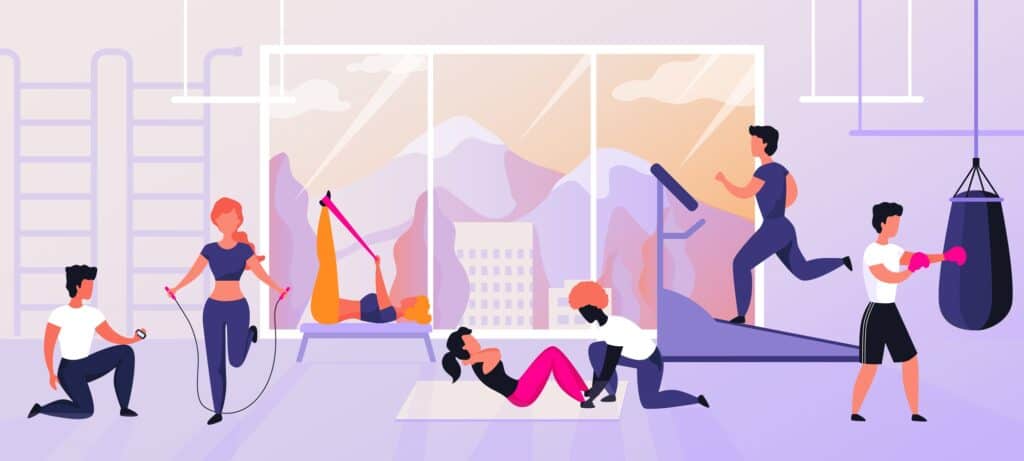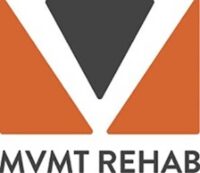FAQs
What conditions does MVMT treat?
MVMT specialise and are experienced in the treatment of musculoskeletal and mental health conditions. These can vary between acute injuries or condition to chronic and debilitating conditions.
Which area does MVMT Rehab Service?
Greater Sydney Area, Wollongong and South Coast, Northern Rivers (Byron Bay to Tweed Region), Greater Brisbane Area, Gold Coast and Gold Coast Hinterland. We can service and treat any location Australia wide with Wi-Fi or 4G connection via Telehealth.
What type of exercise programs does MVMT Rehab provide?
- Gym, Pool, Home or Park
- Depending on your state of recovery or doctor’s recommendations, we utilise all gym equipment (resistance bands, free weights, cable machines, pin-loaded machines etc.), according to your level of ability and recovery (if you are post-injury). We are also able to provide bodyweight and resistance training in a park, at the beach or at your home. Our programs range from mobility work, targeting muscles in isolation to functional and compound exercises.
What other services does MVMT Rehab provide apart from exercise program?
- Assist with Return-to-Work process on a clinical level
- SMART or Open Goal Setting
- Motivational Interviewing
- Assisting the return-to-work process for injured workers via mimicking work duties throughout our programming
- Mindfulness Breathing Exercises
- Lifestyle, Health and Wellbeing monitoring via regular review of questionnaires
- Aspects of Cognitive Behaviour Therapies and Behavioural Modification
Where can I access exercise physiology services?
We are a mobile service and will come to you! You can meet us in a gym near your home, in a park or pool, via telehealth should you live remotely, or we can come to your home, and we will provide exercise equipment on the day.
How can I access the prescribed exercise programs when I would like to exercise on my own?
Your exercise physiologist will send you a link via email via which allows you to access the program online. You are able to enter your own data, collect achievement icons, and communicate with your EP via messaging through the portal.
Can I access your exercise physiology services without a referral?
- Yes, you can call us or send an email to get in contact with us and we organise the rest.
- If you are a private patient, please bring your private health care card details for contributions by your health fund.
- If you are on a workers’ compensation / WorkCover claim or a motor vehicle accident (CTP) claim, please forward your certificate of capacity that mentions exercise physiology in the treatment section.
- If you are seeing us under the DVA scheme, we will require a D905 form filled out by your general practitioner.
Role of Accredited Exercise Physiologists
Accredited Exercise Physiologists (AEP) are university-qualified allied health professionals who prescribe, deliver, and adapt movement, physical activity, and exercise-based interventions to facilitate and optimise health status, function, recovery, and independence. This helps people participate in activities at home, school, work, and in the community.
AEPs provide services to people across the full health spectrum, healthy through to those at risk of developing a health condition, and people with health conditions, a disability, and aged related illnesses and conditions, including chronic, complex conditions.
AEPs apply evidence-based judgment and clinical reasoning to individuals, groups, and the broader community to:
- Improve and maintain health status and function and support reablement
- Prevent decline of health status
- Prevent, treat, and manage health conditions (including diseases, disorders, traumas and injuries), including complex, chronic conditions
- Screen, assess, and measure capacity and function for activities of daily living and work-related activities, and to inform interventions

Prescribe, deliver, adapt, and evaluate movement, physical activity, and exercise-based
interventions to:
- Enhance and maintain function and quality of life
- Facilitate recovery and promote reablement
- Maximise independence
- Educate and advise about health and well-being and how physical activity and exercise can improve health outcomes
- Empower people to improve health outcomes, and self-manage health conditions
- Coach and motivate to increase engagement and self-efficacy in treatment and physical activity, including addressing client preferences, needs, barriers, and goals
AEPs apply a person-centred approach to people of diverse backgrounds and populations and work collaboratively with clients and relevant others involved in supporting their health and well-being.
AEPs practise in a culturally safe and inclusive manner according to the principles of person-centred care and apply appropriate in-person and digital practices such as telehealth.
